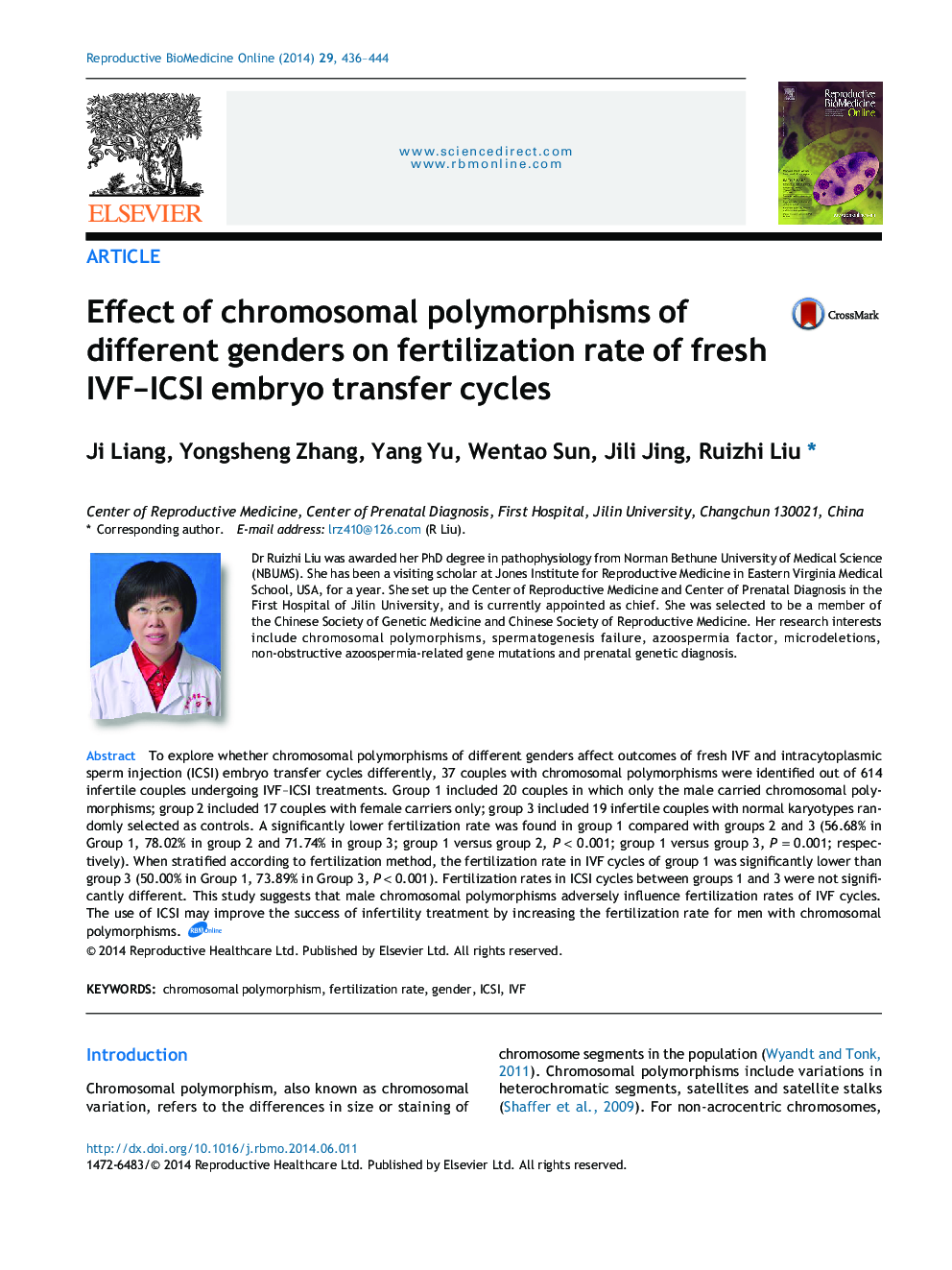| Article ID | Journal | Published Year | Pages | File Type |
|---|---|---|---|---|
| 6189098 | Reproductive BioMedicine Online | 2014 | 9 Pages |
Abstract
To explore whether chromosomal polymorphisms of different genders affect outcomes of fresh IVF and intracytoplasmic sperm injection (ICSI) embryo transfer cycles differently, 37 couples with chromosomal polymorphisms were identified out of 614 infertile couples undergoing IVF-ICSI treatments. Group 1 included 20 couples in which only the male carried chromosomal polymorphisms; group 2 included 17 couples with female carriers only; group 3 included 19 infertile couples with normal karyotypes randomly selected as controls. A significantly lower fertilization rate was found in group 1 compared with groups 2 and 3 (56.68% in Group 1, 78.02% in group 2 and 71.74% in group 3; group 1 versus group 2, P < 0.001; group 1 versus group 3, P = 0.001; respectively). When stratified according to fertilization method, the fertilization rate in IVF cycles of group 1 was significantly lower than group 3 (50.00% in Group 1, 73.89% in Group 3, P < 0.001). Fertilization rates in ICSI cycles between groups 1 and 3 were not significantly different. This study suggests that male chromosomal polymorphisms adversely influence fertilization rates of IVF cycles. The use of ICSI may improve the success of infertility treatment by increasing the fertilization rate for men with chromosomal polymorphisms.
Related Topics
Health Sciences
Medicine and Dentistry
Obstetrics, Gynecology and Women's Health
Authors
Ji Liang, Yongsheng Zhang, Yang Yu, Wentao Sun, Jili Jing, Ruizhi Liu,
